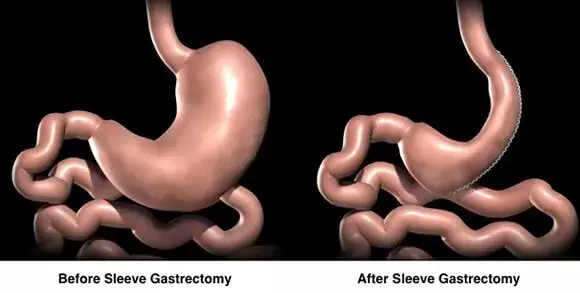- Home
- Medical news & Guidelines
- Anesthesiology
- Cardiology and CTVS
- Critical Care
- Dentistry
- Dermatology
- Diabetes and Endocrinology
- ENT
- Gastroenterology
- Medicine
- Nephrology
- Neurology
- Obstretics-Gynaecology
- Oncology
- Ophthalmology
- Orthopaedics
- Pediatrics-Neonatology
- Psychiatry
- Pulmonology
- Radiology
- Surgery
- Urology
- Laboratory Medicine
- Diet
- Nursing
- Paramedical
- Physiotherapy
- Health news
- Fact Check
- Bone Health Fact Check
- Brain Health Fact Check
- Cancer Related Fact Check
- Child Care Fact Check
- Dental and oral health fact check
- Diabetes and metabolic health fact check
- Diet and Nutrition Fact Check
- Eye and ENT Care Fact Check
- Fitness fact check
- Gut health fact check
- Heart health fact check
- Kidney health fact check
- Medical education fact check
- Men's health fact check
- Respiratory fact check
- Skin and hair care fact check
- Vaccine and Immunization fact check
- Women's health fact check
- AYUSH
- State News
- Andaman and Nicobar Islands
- Andhra Pradesh
- Arunachal Pradesh
- Assam
- Bihar
- Chandigarh
- Chattisgarh
- Dadra and Nagar Haveli
- Daman and Diu
- Delhi
- Goa
- Gujarat
- Haryana
- Himachal Pradesh
- Jammu & Kashmir
- Jharkhand
- Karnataka
- Kerala
- Ladakh
- Lakshadweep
- Madhya Pradesh
- Maharashtra
- Manipur
- Meghalaya
- Mizoram
- Nagaland
- Odisha
- Puducherry
- Punjab
- Rajasthan
- Sikkim
- Tamil Nadu
- Telangana
- Tripura
- Uttar Pradesh
- Uttrakhand
- West Bengal
- Medical Education
- Industry
Post sleeve gastrectomy gastroesophageal reflux- A fact or a fiction

Italy: The development of gastroesophageal reflux disease (GERD) after surgery is one of the most debatable issues surrounding laparoscopic sleeve gastrectomy. In a study published in Surgery journal, a 3-year follow-up showed an improvement in quality of life in these patients and the limited refluxogenic nature of laparoscopic sleeve gastrectomy when the basis of gastroesophageal reflux disease diagnosis is the Lyon consensus.
There has been a steady rise in morbid obesity worldwide, which is now commonly referred to as an epidemic. Morbid obesity is linked to multiple adverse health effects, including morbidity and mortality from heart disease, sleep apnea, diabetes mellitus, hypertension, and osteoarthritis.
Bariatric surgery has emerged as the only effective and proven treatment of morbid obesity and obesity-linked complications in the past decade or two. Apart from the most widely used and accepted bariatric surgery, i.e., Roux-en-Y gastric bypass (GB), laparoscopic sleeve gastrectomy (LSG) has also gained popularity in the recent decade.
Giovanni Tomasicchio conducted the study Department of Emergency and Organ Transplantation, University of Bari Aldo Moro, Bari, Italy, and colleagues to investigate the occurrence of gastroesophageal reflux disease following laparoscopic sleeve gastrectomy and the analysis of patient's quality of life, weight loss, and comorbidities after surgery.
For this purpose, the researchers retrospectively reviewed the clinical records of 52 patients who submitted for laparoscopic sleeve gastrectomy during January and November 2018 and followed up for three years. The patients underwent screening endoscopy at the end of the follow-up period, and patients with postoperative esophagitis were submitted to pH-impedance monitoring (MII-pH) and endoscopic biopsies. The modified clinical DeMesteer score questionnaire was used to assess the presence of gastroesophageal reflux disease symptoms. The 36-Item Short Form Health Survey and the Bariatric Analysis and Reporting Outcome System score estimated postoperative quality of life.
The researchers reported the following findings:
- During the preoperative work-up, only 7.6% of patients had signs of esophagitis at esophagogastroduodenoscopy, while at a 3-year follow-up, 50% of them showed endoscopic symptoms of GERD.
- Twenty-one of 26 patients with esophagitis signs consented to go through MII-pH.
- The median DeMesteer score questionnaire was 4.5, with only 19% of patients showing a value greater than the pH cut-off value (14.72), which indicates GERD.
- MII-pH data analysis demonstrated gastroesophageal reflux disease presence in five patients.
- In 50% of patients, an excellent outcome on the Bariatric Analysis and Reporting Outcome System score was reported, and all eight domains from the 36-Item Short Form Health Survey improved significantly.
The researchers conclude, "the findings showed an improvement in the quality of life of these patients and the limited refluxogenic nature of laparoscopic sleeve gastrectomy at 3-year follow-up when the basis of diagnosis of gastroesophageal reflux disease was the Lyon consensus."
Reference:
Tomasicchio G, D'abramo FS, Dibra R, Trigiante G, Picciariello A, Dezi A, Rotelli MT, Ranaldo N, Di Leo A, Martines G. Gastroesophageal reflux after sleeve gastrectomy. Fact or fiction? Surgery. 2022 Sep;172(3):807-812. DOI: 10.1016/j.surg.2022.04.040. Epub 2022 Jul 2. PMID: 35791977.
Dr Kamal Kant Kohli-MBBS, DTCD- a chest specialist with more than 30 years of practice and a flair for writing clinical articles, Dr Kamal Kant Kohli joined Medical Dialogues as a Chief Editor of Medical News. Besides writing articles, as an editor, he proofreads and verifies all the medical content published on Medical Dialogues including those coming from journals, studies,medical conferences,guidelines etc. Email: drkohli@medicaldialogues.in. Contact no. 011-43720751


